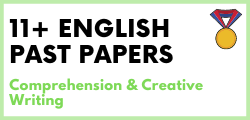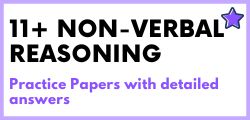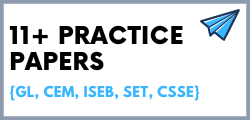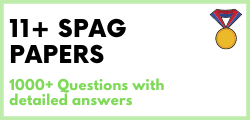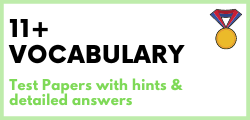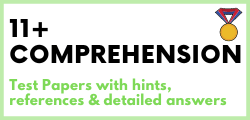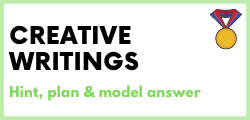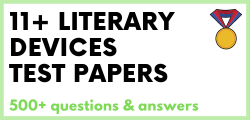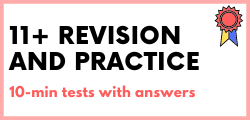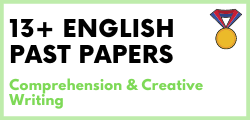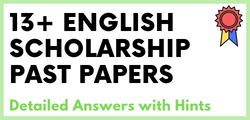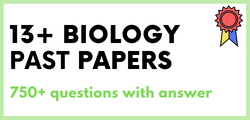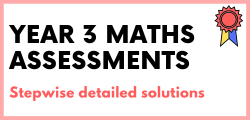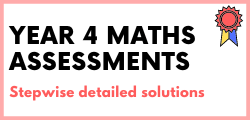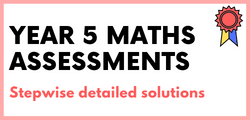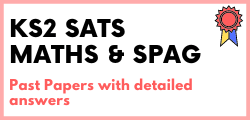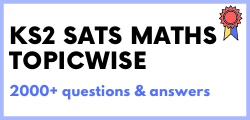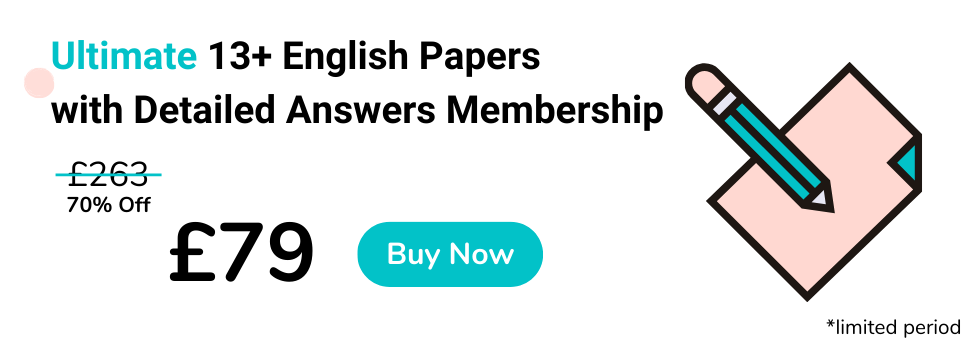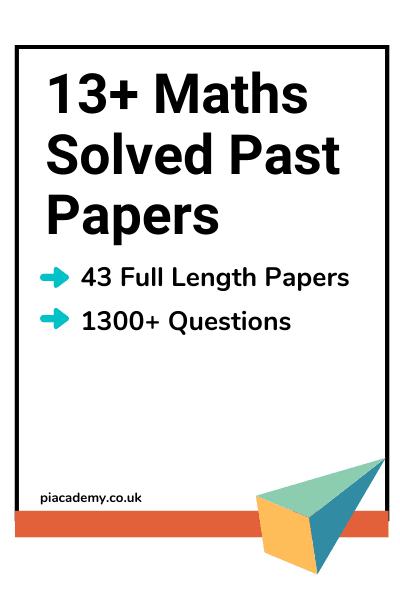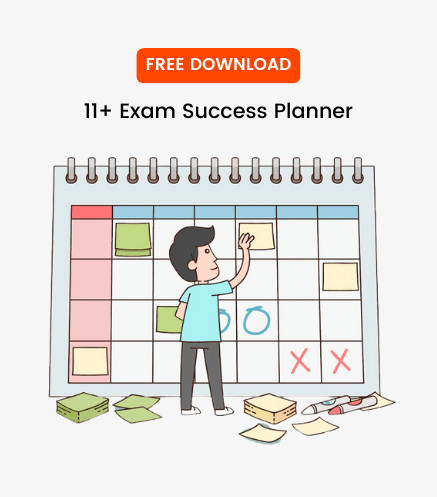Introduction to 13+ Exam
The 13+ Common Entrance Exam is a very important exam. It is the first step to tertiary education for 12 and 13-year-old students. This article on 13+ Revision tips and practice resources helps to prepare for the 13+ common entrance exams.
There are three different levels of the exam, with the first one being a national qualification. If a student does not do well the first time, they can repeat the exam, but they will have to pay. This article focuses on how to make the best out of the thirteen+ Common Entrance Examination.
If you want your child to ace the test, it is wise to take various practice questions before the exam to practice the various subjects. This article will take a look at the 13-plus exam and what you can do to prepare for it.
What is the 13+ Common Entrance Examination?
The 13+ Common Entrance Examination is a reference for secondary schools in the UK. It is usually taken by children who are 13 years old or older and it is a requirement for entry into secondary school.
With a wide range of topics and a high level of complexity, it is a challenging exam. With this in mind, there are some common 13+ revision resources that you should use in your child’s preparation. These include a revision planner, revision notes, and revision notes for specific topics. Additionally, you should use a 13+ revision planner to create a structured revision plan for your child. This will help you to monitor what your child has to revise and when.
What can you expect from the 13+ Exam?
As the name suggests, the 13-plus exam for grammar school is a common entrance exam for 13-year-old students in the UK. It is a key gatekeeping exam for secondary education, and it is taken by over 1 million students every year.
The exam is taken by students who are in their final year of primary school, as well as students who have taken the 11-plus examination, or children of parents who are attending a selective school. However, if your child is taking the 13+ Common Entrance Examination, you should make sure you know the key things to expect from it.
It can be a difficult exam, with a few questions that have a lot of depth. However, there is a lot of support available for it. If you are worried about your child’s performance, you should consider taking them to see a professional teacher for extra help.
What should your child study for the 13+ Exam?
For the 13+ Common Entrance Examination, there are many different topics that your child will need to study for. It is important that your child is prepared for these topics so that they are comfortable with them when they take the exam.
English
READING
Literary Prose
Examiners give candidates a passage of literary prose from a play, a novel, biography, or travel writing. Questions follow to test understanding and ability to analyze and evaluate the piece given. There is no standard pattern for the selection of the pieces, so quality fiction may be provided.
Skills to be tested at the appropriate level include the following:
- basic understanding and vocabulary
- use of text to illustrate answers
- drawing of inferences
- evaluation of style, language, and purpose
- delivery of opinions/judgments/arguments based on given material
- awareness of how grammar, syntax, and punctuation affect the meaning
- capacity to make comparisons and evaluate contrasts
Poetry
13+ Examiners give candidates a piece of unseen poetry – an entire poem or an extract. Questions follow, making it a literary comprehension test. Candidates must show awareness of how language is used and must buttress their opinions by referring to the text. Questions are designed to test candidates’ understanding of literary effects. This requires knowledge of literary devices such as simile, metaphor, personification, symbolism, irony, alliteration, etc.
WRITING
Candidates must answer two questions from a range of options. In some cases, the candidate must show an ability to: argue, persuade, explain, advise or inform. In other cases, the candidate will be given the opportunity to expand on ideas or concepts. Also, candidates may write on one or more texts studied in class or read independently. Questions are general in nature. They offer candidates the opportunity to deal with moments of drama, transition, contrast, and various other ideas. Texts should range across genre and period. Candidates should be encouraged and helped to discuss their reading and analyze their ideas closely.
Science
Biology:
- Structure and function of living organisms
- Cells and organization
- Nutrition and digestion
- Gas exchange systems
- Reproduction in plants
- Health
- Material cycles and energy
- Photosynthesis
- Cellular respiration
- Interactions and Interdependencies
- Relationships in an ecosystem
- Genetics and evolution
- Variation, classification, and inheritance
Chemistry:
- The particulate nature of matter
- Atoms, elements, and compounds
- Pure and impure substances; physical changes
- Chemical reactions
Physics:
- Energy:
- Resources
- Changes in systems
- Conservation
- Motion and forces:
- Description
- Force and rotation
- Force and pressure
- Density
- Waves:
- Sound waves
- Hearing
- Light waves
- Electricity and electromagnetism:
- Circuits
- Magnetism
- Electromagnets
- Space Physics
What are the best 13+ revision resources for the Exam?
The Common Entrance Examination is a tricky exam to sit. Even if your child is well prepared, they may still find it challenging. This is because the Common Entrance Examination is open to all students in the UK, with the aim of assessing their strengths and weaknesses.
It is important to remember that children are different, and some may find the 13-plus exam papers more difficult than others. There are ways to make the Common Entrance Exam more manageable for your child. If your child has trouble studying for the Common Entrance Exam, make sure that they have the best revision resources possible like 13 plus exam papers with answers. The best 13+ revision resources could be textbooks, websites, and apps.
13+ Past Papers and Sample Papers
Some of the most common are 13 plus past papers and sample papers. These papers will give you a good idea of what the exam is like and what kind of questions you need to be able to answer. You can find these online.
Here are some tips to best use past papers and sample papers to help your child prepare for the 13+ exam:
- Use the papers like they are actual exam papers: Have your child answer the papers in a real exam environment.
- Begin with a mock test: Let your child sit for a mock test in each subject. This helps in many ways:
- What your child knows well
- What your child knows but not so well
- What your child knows little or nothing about
- Help your child prepare, then test them with past 13+ past exam papers: Once you have established your child’s strengths and weaknesses, prepare them subject-wise. Then conduct mock tests to evaluate their grasp of the subjects.
- Set dates and times for the mock tests: Schedule a test and let your child know about it in advance. Then let them prepare on their own. This helps them prepare when they need to tackle the actual exam.
- Let everyone – friends and family – know that the children will not be free for the duration of the mock tests. Let your child answer the test without distraction.
- When revising for a subject, it can be difficult to stay motivated for the weeks or months leading up to the exam. You may find your child slipping or falling behind in revision as they feel complacent. To stay motivated and up-to-date in their 13+ revision, help them with reading past papers, using questions and answers, and marking up past papers.
- One of the main ways to ensure that your child is studying effectively is to set up a system of random rewards. This could be anything, from a small but meaningful reward for completing a section of a 13+ past paper, to a small prize for finishing a whole past paper. This is a way of making sure your child is focusing on the parts that are most important, while also making sure they are engaging with their work. There are many advantages to this. Reward systems can help them stay committed to their studies. They can also make them more motivated to achieve their goals. The key is to make the reward something that is related to the task.
What are the good habits you should inculcate in your child?
To ensure that your child is able to study effectively and score well in 13+ entrance exams, it is important that you develop good habits. You need to make sure that your child spends quality time studying and you need to make sure that your child is well-rested before going to the exam hall. It is also important that your child is well-prepared for what would be asked in the entrance exam. You can view the sample papers for the entrance exam and make a study plan in advance. This will help your child to study effectively.
What are the bad habits you should help your child avoid?
It is important to be aware of some of the bad habits that your child might be developing. These are not just bad habits; they are habits that are likely to make your child fail the school entrance exam. They will also have a negative impact on your child's future. Here are some of the bad habits that you should help your child avoid:
- Spending too much time outside of school
- Playing games on the computer
- Not completing homework
- Not answering questions in an exam.
Conclusion
It's always helpful to have the opportunity to practice with a 13-plus past paper or sample paper. We are here to tell you that there are many resources out there that can help you get ready for your exam. When you feel like you need to improve your child’s score on its entrance exam, you can try using past papers, sample papers, or past questions and answers to practice with before the exam. And remember, practice makes perfect!








